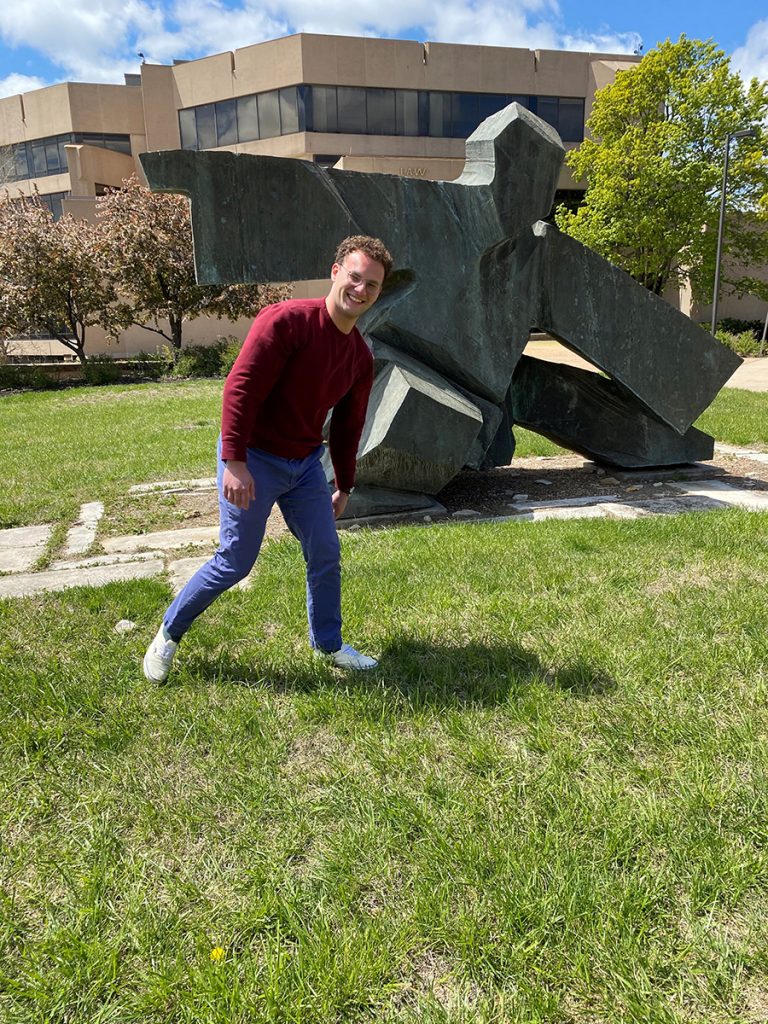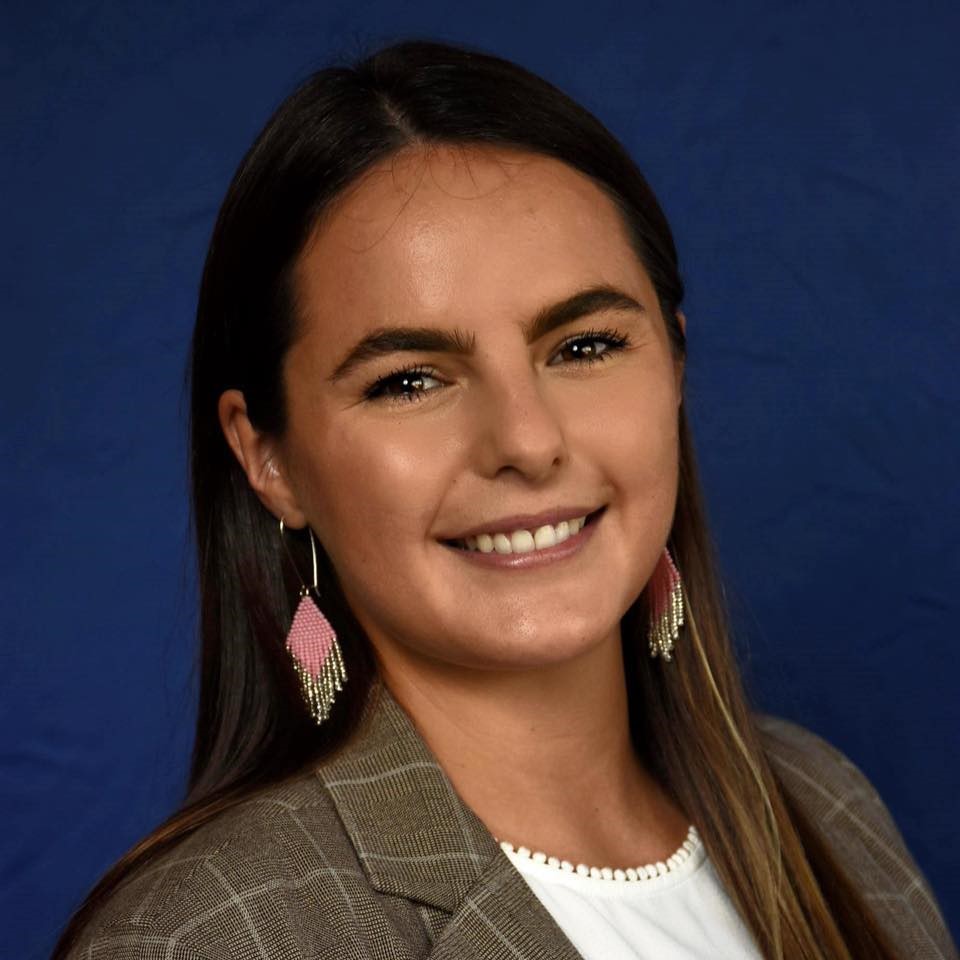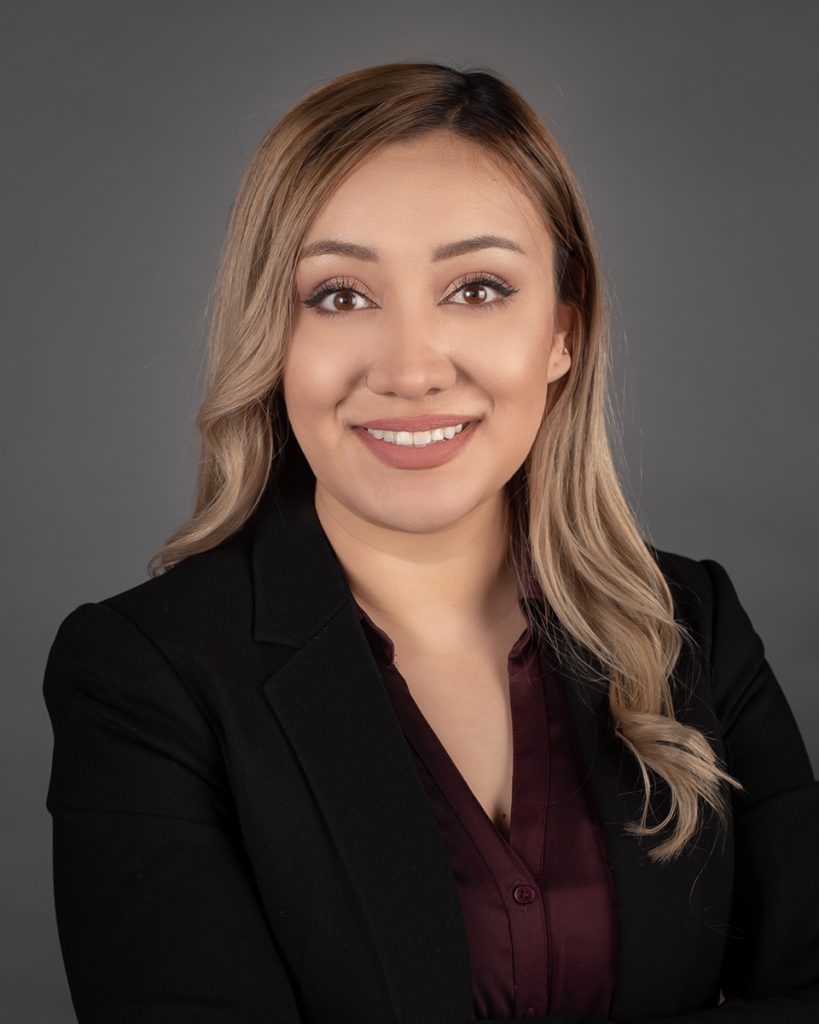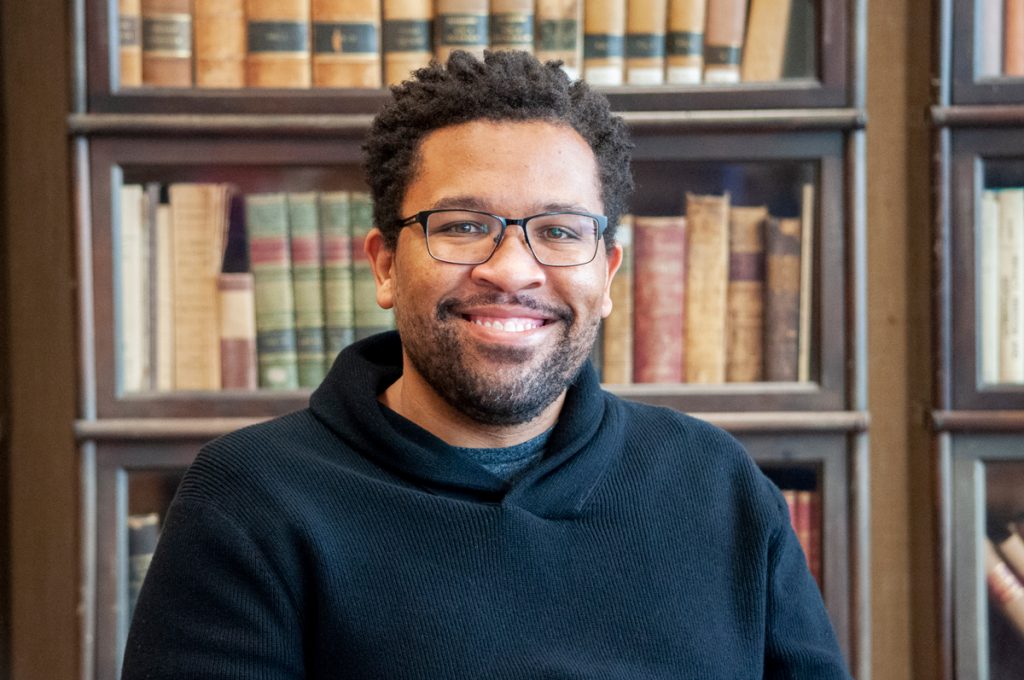Banner carrier is headed to Kansas Supreme Court clerkship after graduation
Third-year law student Howard Mahan is at the top of his class at the University of Kansas School of Law this year. He was ranked first in his class of 99 at the end of the fall 2020 semester.
Mahan, L’21, was chosen as the Class of 2021’s banner carrier for KU Law. Mahan was selected by the law faculty for this honor because of his exemplification of student excellence.
“It’s really an honor I didn’t expect, especially knowing how devoted and hardworking the rest of the 3L class is,” Mahan said.
At KU Law, Mahan was a comments editor for the Kansas Law Review and a research assistant to Professor Stephen Ware and Associate Dean Uma Outka. During his 1L year, he earned the Payne & Jones Lawyering Program Award and CALI Awards for receiving the highest grade in the class for Civil Procedure, Lawyering Skills I & II, Criminal Law and Torts.
Mahan devotes his non-class time to playing guitar in several bands, including Howard Mahan and Friends, Big Red Horse (Wichita), The Blades (Salina), The House Rockers (Kansas City), and as an alternate guitarist for Randy McAllister and the Scrappiest Band in the Motherland (South Dakota). He also plays guitar for the Moody Bluebooks, a rock band made up of KU Law faculty, staff and students.
“That’s honestly been really helpful to me to have an entirely separate outlet from something happening on campus — especially in the wake of the pandemic,” Mahan said.
Mahan values the law faculty who helped him succeed throughout law school.
“I’ve had several classes and professors that I really respected and learned a lot from,” Mahan said. “Whether it’s jamming with the Moody Bluebooks in Professor Thomas Stacy’s basement (pre-coronavirus) or talking to Professor Ware and Professor Shawn Watts about how law school really works — I’ve had a lot of really positive experiences with my professors.”
Mahan is originally from Fredonia, Kansas. He earned a B.A. in business management in 2016 and an MBA in 2018, both from the Kansas Wesleyan University.
He was drawn to KU Law for many reasons, including his desire to stay in his home state and the school’s connections to local law firms.
“I’m a Kansan, so KU was the natural choice,” Mahan said. “There were a lot of factors at play. I wanted to stay in the area, so I really thought it was the best school with the best scholarship package for me and the best connections to firms in the area.”
After graduation, Mahan will be doing a one-year judicial clerkship for Kansas Supreme Court Justice Caleb Stegall, L’00, in Topeka.
“I’m excited to work for Justice Stegall because it’s not really an area of law that I ever expected to be working in; however, I have a really great appreciation for the justice system and judges in particular,” Mahan said. “It’s a great opportunity to work in the court system and serve my home state at the same time.”
Once his clerkship is complete, he plans to practice in Polsinelli’s Kansas City office in the firm’s corporate department. Mahan was a summer associate at Polsinelli in 2019.
“I’m excited to work for Polsinelli because they seem like a really good firm,” Mahan said. “The corporate department aligns closely with my past educational experiences, and I think there is a lot of good that can potentially be done at any level of practice.”
— By Ashley Golledge
This post is the second in a series highlighting just a few of the exceptional members of the Class of 2021. Check out a previous story about Aidan Graybill, and stay tuned for more profiles as we celebrate this year’s graduating class.





